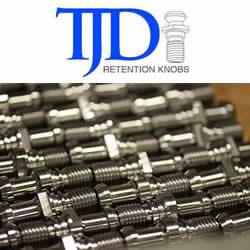OPAK Project Develops Industry 4.0 Prototype Stopper Module – the First Outcome of the Project
This proof of concept will lead the way to future developments reports Festo, an OPAK partner. Festo and Siemens have also collaborated on an Industry 4.0 inspired machine transport solution - the Multi-Carrier System.
HAUPPAUGE, NY, August 4, 2015 — Festo said today that progress is being made by the Open Engineering Platform for Autonomous Mechatronic Automation Components (OPAK) multi-partner Industry 4.0 development team and that a prototype integrated stopper module for conveyors has been developed. Festo also reported on its work with Siemens on the 4.0 inspired Multi-Carrier System for flexible machine transport capabilities.
Industry 4.0
The OPAK research project, which is subsidized in Germany by the Federal Ministry of Economics and Energy, brings together public and private organizations to develop Industry 4.0 enabling technologies. The term Industry 4.0 refers to the idea that manufacturing is undergoing a fourth industrial revolution characterized by the individualization of products under the conditions of highly flexible production. Tasks that are currently still performed by a central master computer will be taken over by components. Components will network with one another in an intelligent way, carry out their own configuration with minimal effort, and independently meet the varying requirements of production.
The first outcome of the research activities in the OPAK project is a prototype of an integrated stopper module: the CPS-Gate. Prototypes like the CPS-Gate are proof of concept of the kinds of flexible plug-and-play components that will be vital to the implementation of Industry 4.0. The CPS-Gate prototype incorporates in one component all the functionality required for stopping work piece carriers on a conveyor belt - functionality that resides today in individual components and systems, including a PLC, sensors, actuators, RFID/NFC technology and communication functions within an MES/ERP application. The CPS-Gate prototype will be incorporated within Festo Didactic Learning Systems facilities for training on Industry 4.0 concepts.
Multi-Carrier Systems
Festo and Siemens have collaborated on an Industry 4.0 product, the Multi-Carrier System. This machine transport system enables high flexibility in work piece transfer. The system moves work pieces freely and synchronously to the process at hand and can be integrated within the existing material flow - including seamless loading and unloading of carriages. The Multi-Carrier System allows for quick conversion of the machine to various formats to accommodate a range of product types. The Multi-Carrier System supports overall integration of transport movements, motion control functionality, and coordination of additional machine modules.
Industry 4.0 will create an environment where plant engineering will be carried out more intuitively, faster, and more efficiently than presently possible. Under Industry 4.0 individual automation components will be more intelligent and production facilities will be more flexible.
"We are dealing with two topics in the OPAK project," said Professor Peter Post, PhD, Head of Corporate Research and Technology at Festo. "On the one hand, we are simplifying and making more efficient the engineering process for new plants. On the other hand, we are developing automation components that have a digital memory - the first step along the road to intelligent components for Industry 4.0."
Simplifying new plant engineering processes
To make the engineering process more intuitive and efficient, a virtual emulation of the production plant is generated within an OPAK framework. This allows all processes and functions within the plant to be simulated and tested by means of engineering software before a plant is built.
Components for Industry 4.0
As a requirement for generating a virtual emulation of a production plant, the automation components must incorporate all the information needed for operation within an integrated and networked controller environment. These components must have adaptable interfaces that minimize assembly time and create as close as possible plug-and-play operation. The work that is being carried out by Festo and other OPAK program partners is focused on small scale systems that will be transferable to the factory of the future. The CPS-Gate embodies all these principles.
Featured Product

